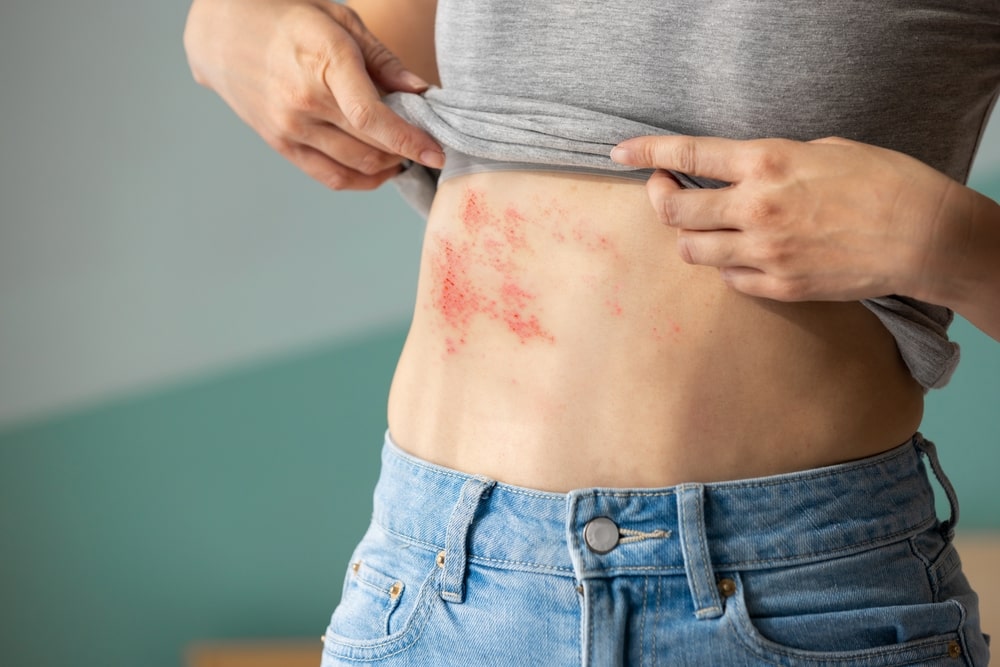Preventing Shingles: Tips for Boosting Immunity and Reducing Risk Factors

Shingles is a viral infection caused by the varicella-zoster virus. It is characterised by a painful rash that typically appears on one side of the body or face. While it is not possible to eliminate the risk of developing shingles, there are several measures you can take to reduce your chances and boost your immune system.
Stages of Shingles
Understanding the stages of shingles is crucial for early recognition and effective management of the condition. By familiarising yourself with the progression of shingles, you can better navigate the course of the illness and seek appropriate medical care when needed. Shingles progresses through several stages, each with distinct symptoms:
● Prodromal Stage: Before the rash appears, you may experience headache, fever and general malaise.
● Active Stage: A painful, blistering rash develops, usually on one side of the body or face.
● Postherpetic Neuralgia (PHN): In some cases, pain can persist even after the rash has healed.
Signs of Shingles
Shingles is characterised by a set of distinctive signs that typically appear in a specific area of the body:
● Pain, burning or tingling sensation
● Red rash that develops a few days after the pain
● Fluid-filled blisters that break open and crust over
● Itching
Is Shingles Infectious?
Shingles is not contagious, but the virus can be spread to someone who has never had chickenpox, potentially causing them to develop chickenpox. The virus is spread through direct contact with the fluid from the blisters.
Reducing Risk Factors
While it is impossible to eliminate the risk of developing shingles entirely, certain measures can significantly reduce your chances and minimise the impact of the disease:
● Vaccination: The most effective way to reduce the risk of shingles is to get vaccinated. The Shingrix vaccine is recommended for adults over 50 and those with weakened immune systems. It is over 90% effective in preventing shingles.
● Boost Immune System: A strong immune system can help keep the virus dormant. Ensure a balanced diet rich in fruits, vegetables and whole grains. Regular exercise, adequate sleep and stress management also contribute to a healthy immune system.
● Avoid Trigger Factors: Certain factors like stress, illness or medications that suppress the immune system can trigger the reactivation of the virus. Try to manage stress through relaxation techniques such as meditation or yoga.
● Maintain Good Hygiene: Practice good hygiene, especially if you're around someone with active shingles or chickenpox. Wash your hands frequently and avoid touching the rash.
● Protect Vulnerable Populations: If you have shingles, cover the rash and avoid close contact with people who have never had chickenpox, pregnant women, newborns and those with weakened immune systems.
Shingles Treatment
While there is no cure for shingles, antiviral medications such as acyclovir, valacyclovir and famciclovir can help shorten the duration of the illness and reduce the severity of symptoms. Pain relief can be managed with over-the-counter or prescription pain medications, wet compresses and soothing baths.
It is important to seek medical advice promptly if you suspect you have shingles, especially if it involves the face, as it can affect the eyes and lead to serious complications.
Schedule Your Consultation at Pearl Chemist Group
Shingles can be a painful and debilitating condition, but by understanding the risk factors and taking steps to boost your immunity, you can reduce your chances of developing it. Vaccination is the most effective way to prevent shingles and maintaining a healthy lifestyle can help keep your immune system strong. If you do develop shingles, seek medical treatment promptly to manage the symptoms and reduce the risk of complications.
For personalised advice on preventing shingles and boosting your immune system, book a consultation at Pearl Chemist Group. Our experts are here to provide tailored recommendations and answer all your health-related questions. Click here to schedule your appointment today.






